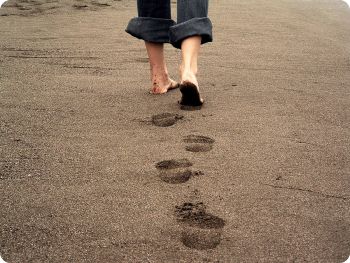The Nobel Prize Winning Science behind Telomeres and Aging
by Lorraine Alexander
In 2014 Diane Sawyer reported groundbreaking historical research from Harvard University. The researchers at Harvard succeeded in reversing aging in elderly mice. These changes were evident through hair growth, shinier coats, improved memory, the size of their brain grew, and even the ability to reproduce was restored. For the first time in history, research proves that there may be a way to delay or even turn back aging.
"Nobody had any idea that meditation and the like, which people can use to reduce stress and increase wellbeing, would be having their salutary and well-documented useful effects in part through telomeres." - Elizabeth Blackburn, Ph.D., Nobel Prize 2009
Humans are comprised of 37.2 trillion cells. With time, these cells naturally age. Each cell has a nucleus, which holds forty-six chromosomes. Chromosomes are often described as long shoelace-like X-shape structures. The tips are called telomeres, a protective end cap, much like the end of a shoelace. Every time a cell divides the telomere shortens. As telomeres shorten, we become more susceptible to disease and cancer. Eventually, the telomeres diminish to a degree that causes the cell to die. This is the only known "clock of aging" in humans discovered by medical science to date. As science grows to understand telomeres and telomerase, there is hope on the horizon for solutions that will preserve the integrity of the telomere, offering a higher quality of life and health well into our golden years.
The enzyme telomerase is the key
Telomeres are an essential protection against the degradation of the chromosome. The protective ends of chromosomes are called “telomeres,” formed by an enzyme called "telomerase."
As telomeres shorten with each division, cells age, and by all medical standards, so do we. Conversely, when telomerase activity is high, the length of the telomere is maintained. Many experts believe our aging clock can actually be reversed by as much as ten years, through lowering stress, meditation, exercise, healthy eating, a positive attitude, and a supportive social network.
| Elizabeth Blackburn wins the Nobel Prize for telomere research. Molecular biologist Elizabeth Blackburn—named as one of Time Magazine’s 100 “Most Influential People in the World” in 2007. And in 2009, the Nobel Prize in Physiology or Medicine was jointly awarded to Elizabeth H. Blackburn, Carol W. Greider, and Jack W. Szostak for the discovery of “how chromosomes are protected by telomeres and the enzyme telomerase.” Soon after, Blackburn co-authored the New York Times bestselling book, The Telomere Effect. |
Excerpt from Mosaic's The Science of Life
The Telomere Effect: It's About Keeping Healthier for Longer
Interview by Zoe Corbin with Elizabeth Blackburn
Zoe Corbin: "In the book you argue that to lengthen our telomeres, or at least stop them shortening, we need to improve our lifestyle by managing chronic stress, exercising, eating better and getting enough sleep. A lot of these things are recommended already – so what is new?"
Blackburn replies, "People hadn’t understood why at the cellular level the sorts of things that are recommended to improve lifestyle can help stave off disease. One reason is because they are helping you maintain telomeres. The book integrates a lot of new studies – from genetics, epidemiology and social science – that have been accumulating. We also provide a new biological underpinning to the mind-body connection. Nobody had any idea that meditation and the like, which people can use to reduce stress and increase well-being, would be having their salutary and well-documented useful effects in part through telomeres. The book is also recognizing how much control we can have. Small tweaks in how you approach stress, for example, can lead to long-term habits that make a difference."
Excerpt from Pionic
Can Meditation Really Slow Aging?
Interview by Jo Marchant with Elizabeth Blackburn
"...Blackburn says, “Ten years ago if you’d told me that I would be seriously thinking about meditation, I would have said one of us is loco,” she told the New York Times in 2007.
"Yet that is where her work on telomeres has brought her. Since her initial study with Epel, the pair have become involved in collaborations with teams around the world – as many as 50 or 60, Blackburn estimates, spinning in “wonderful directions”. Many of these focus on ways to protect telomeres from the effects of stress; trials suggest that exercise, eating healthily and social support all help. But one of the most effective interventions, apparently capable of slowing the erosion of telomeres – and perhaps even lengthening them again – is meditation."
Excerpt from CNN
Can Meditation Really Slow Aging?
Interview by Jo Marchant with Elizabeth Blackburn
Blackburn's view is that meditation is a fair topic to study, as long as robust methods are used. So when her research first pointed in this direction, she was undaunted by concerns about what such studies might do to her reputation. Instead, she tried it out for herself, on an intensive six-day retreat in Santa Barbara. "I loved it," she says. She still uses short bursts of meditation, which she says sharpen her mind and helps her to avoid a busy, distracted mode. She even began one recent paper with a quote from the Buddha: "The secret of health for both mind and body is not to mourn for the past, worry about the future, or anticipate troubles but to live in the present moment wisely and earnestly."







 RSS Feed
RSS Feed

